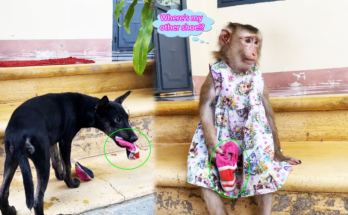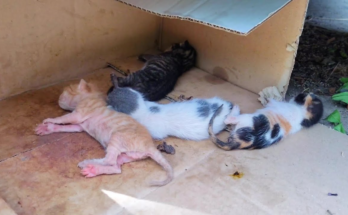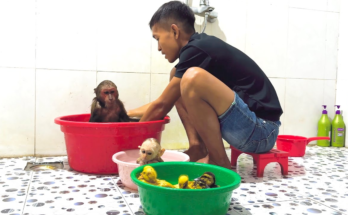Lala was usually full of sunshine—always laughing, sharing jokes, and lighting up the room with her energy. But today was different. She sat quietly in the corner of the classroom, eyes lowered and lips pressed tight, trying to hold back the sting of emotions swirling inside her.
It had all started that morning when Thuy, a classmate known for her sharp tongue and louder-than-life personality, made a cruel comment online. Under one of Lala’s innocent posts about her favorite book, Thuy had left a string of sarcastic replies, mocking Lala’s taste and even calling her “a baby for liking fairytales.”
At first, Lala tried to ignore it. “She’s probably just joking,” she told herself. But as more classmates laughed at Thuy’s comments and even added their own, Lala felt a wave of shame and anger wash over her. Why was Thuy picking on her? And why was no one standing up for her?
By lunchtime, Lala’s sadness turned into frustration. She confronted Thuy in the hallway, her voice trembling but firm. “Why did you say those things? I didn’t do anything to you.”
Thuy looked surprised at first, then shrugged. “It was just a joke. Don’t take it so seriously.”
“But it wasn’t funny,” Lala snapped. “You made me feel small for something I love.”
The tension in the hallway was heavy. A few nearby students glanced over, realizing maybe the “joke” had gone too far.
Later that day, Lala’s best friend Mia posted a supportive message: “Fairytales teach us hope and courage. Never be ashamed of what you love. We stand with Lala.” Slowly, others followed. Apologies came, and even Thuy seemed to reflect on her actions.
Though the pain didn’t disappear instantly, Lala felt stronger knowing she had spoken up. Her voice mattered.
This experience taught everyone a valuable lesson: words have power. And kindness will always be braver than cruelty.



